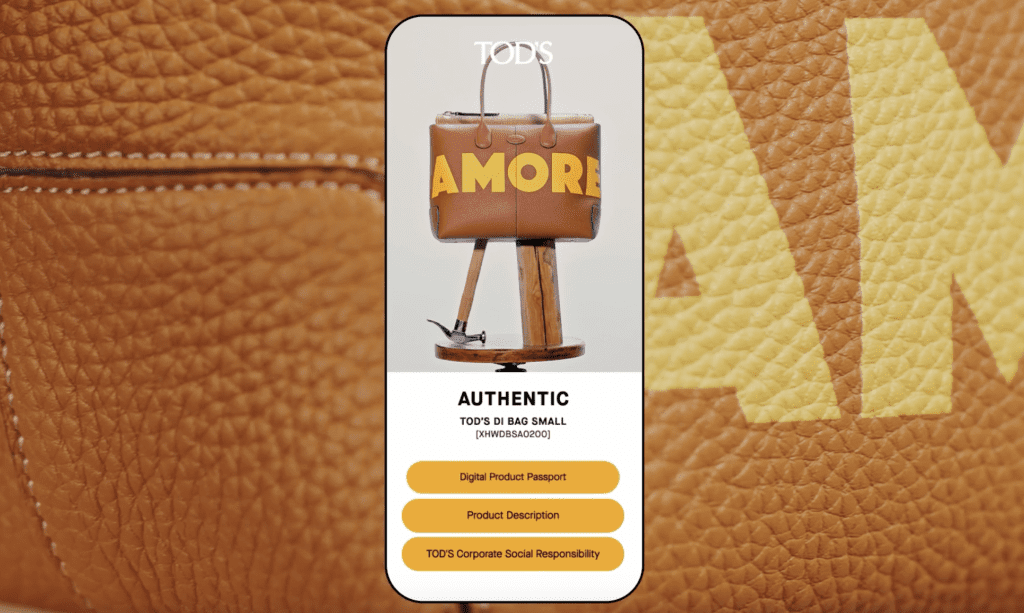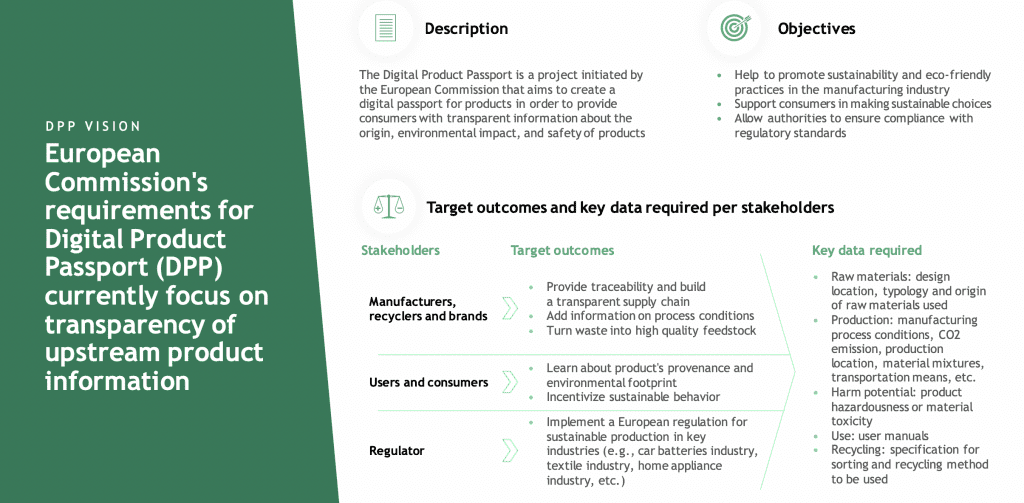The hype around art-linked NFTs may be a thing of the past but companies are looking to alternative uses of blockchain and/or other tech to add value to their offerings. Most recently, Tod’s revealed that it has joined the Aura Blockchain Consortium in furtherance of an effort to produce “Digital Product Passports” for use in connection with customized versions of its Di Bag, with plans to expand its use of the NFC tech-enabled digital passports beyond the Di Bag to other products, as well.
In a statement, the Italian accessories brand said that using Aura Blockchain technology and an NFC tag that guarantees the bags’ authenticity and traceability, consumers are able “to access all the information about the bag and its supply chain directly through [their] smartphone.” Using this tool, customers can view “the origin of a produce’s materials, production and compliance processes, and the quality, sustainability, and transparency aspects, [which] guarantee the value and identity of your Di Bag over time.” Additionally, Tod’s says that with the bag’s Digital Product Passport, its customers will have the chance to “enjoy a selection of exclusive premium benefits.”

Other brands have been looking to similar tech in order to better cater to consumers. Mugler, for example, announced this month that it is partnering with Arianee on digital product passports for a selection of its handbags. The brand stated that the product passports will enable customers to experience “a new level of engagement,” with the QR code-enabled passports facilitating exclusive brand-related content and experiences, as well as product authentication and tracking – including in the event that the Mugler products are resold.
This focus on customer engagement, as well as provenance tracking, circularity, etc., has been central to many of the existing examples of product passport/digital twin ventures from brands in the luxury space, including those from Dior, which offered up limited-edition “Turquoise Dior Oblique mohair” sneakers equipped with an NFC chip earlier this year, Louis Vuitton, Loro Piana, and Margiela, among others. And even before that, the King Charles-founded, Federico Marchetti-led Fashion Taskforce has been touting the benefits of – and is currently in the process of scaling – its own Digital ID system.
Maybe more interestingly though is the mention of regulatory compliance that has come hand-in-hand with Mugler’s passport. In a nod to increasingly stringent supply chain and sustainability regulations in the European Union, in particular, Pierre-Nicolas Hurstel, CEO and Co-founder of Arianee, stated in connection with the Mugler release, “Digital product passports linked to a physical good will play an instrumental role in fashion and luxury brands’ circularity, compliance, and engagement strategies.”
The Bigger Picture here from a regulatory POV is the European Commission’s March 2022 adoption of a proposal for the mandatory use of digital product passports as part of the Ecodesign for Sustainable Products Regulation. According to the Commission, the digital product passport system will “provide information about products’ environmental sustainability. It should help consumers and businesses make informed choices when purchasing products, facilitate repairs and recycling and improve transparency about products’ life cycle impacts on the environment. The product passport should also help public authorities to better perform checks and controls.”
Boston Consulting Group summarized the EU’s Digital Product Passport scheme as follows …
